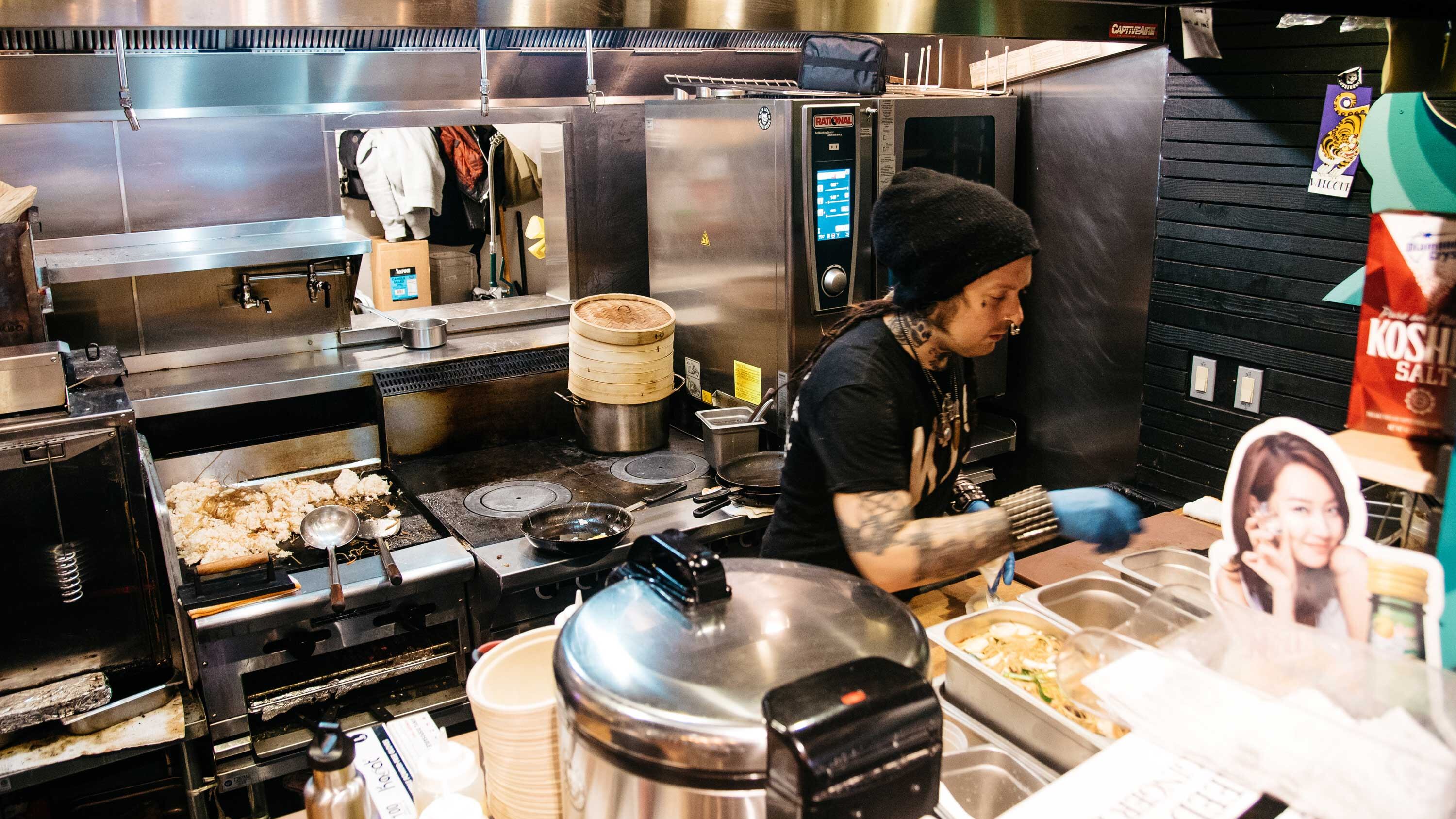Kim Jong Grillin chef Han Ly Hwang needed to have the stove hood in his popular Southeast Divison Street cart cleaned. So he did what other Portland restaurateurs do and called up a cleaner for an estimate.
"Sorry Phong," Hwang says he was told. "We don't do Oriental restaurants. Too dirty."
Ginger Koch of Lake Oswego's Hot Shot Hood Cleaners confirmed this policy when reached by Willamette Week.
"We don't service Orientals," she told WW. "We don't have the manpower. They have a grease residue that is like an adhesive you can roll with your finger. The grease they produce does not come off easily, does not clean easily because we don't have the right chemicals or the right equipment."
Kyo Koo, chef at brand-new Beijing street food spot Danwei Canting—previously chef at fine dining spots Clarklewis and Bluehour—says he got the same response three days ago.
"He wasn't combative," says Koo of Hot Shot co-owner Bob Koch. "He just said, 'We don't do Oriental restaurants.' I wanted to tell him that it was a semi-racist word, but I just bit my tongue. Maybe he's had a bad experience. I'm sure it was some super greasy wok kitchen, and he had a bad experience. He just said it in a semi-nice, kind of racist way. He wasn't unpleasant. He's obviously just kind of ignorant."
Ginger Koch says the issue is peanut oil. But neither Koo nor Hwang were asked about the type of oil they use, nor were they offered an inspection and estimate.
"We can find out what kind of cooking they're actually using," she says. "We don't just arbitrarily say no because they're Asian. My husband is the owner along with myself. He goes in and takes a look—and determines whether it's going to be safe for our employees, whether we're going to be able to clean our restaurants. we refer them to people who will be able to help them."
Neither Koo nor Hwang were referred to other cleaning services.
"Rather than take the job and run them around and lead them on as to whether we can do it—we made a policy we don't do Orientals. This is after years of trying. What they use to cook with—you cannot get it off," Koch says. "Rather than take the job and do a poor job, my husband would rather not go into that field. That's not discrimination. We know our limitations."
Hwang says he's sympathetic to Hot Shot as small business owners, and was initially reluctant to speak to WW about it after we'd seen a post on social media.
But he was also taken aback.
"I called and said, 'My name is Han from Kim Jong Grillin and I'd like to get an estimate," says Hwang. "He said, 'I don't do Oriental restaurants.' I was so shocked and jarred. I said, 'Maybe you want to rephrase that?'"
"I'm not racist," Hwang said he was then told.
Rather, Koch told him it was because Asian restaurants are too dirty.
"'I can bring a crew of six people, it'll still be dirty," Hwang said Koch told him. "I said, 'I don't know what to tell you. This is absurd.' I was like, did that just happen? He said it so nonchalantly, I thought maybe it was standard in the industry. I don't think they're malicious, I just think maybe they need to update."
Koch says it's out of consideration for the restaurants that they made the policy, saying that based on past experience, their equipment and manpower is not sufficient to handle the job. But if it's a blanket policy against Asian businesses, it's quite possibly illegal.
"Public accommodations law says that if you own a public business that provides some service—like restaurant or car cleaning—when you open your business you need to serve the public," says Bureau of Labor and Industries spokesman Charlie Burr. "It's unlawful to deny service based on race, national origin, and the like. There are clear protections when a person goes about their daily life, when they're going to a shop. National origin is a protected class. You couldn't have a policy against African Americans."
Burr says businesses are often under the false impression they can deny service to people for any reason they choose.
"Someone pipes up and says 'I reserve the right to refuse service.' Well, you lawfully don't have that right. You can't say, 'You're Jewish, I won't serve you a sandwich,'" he says.

